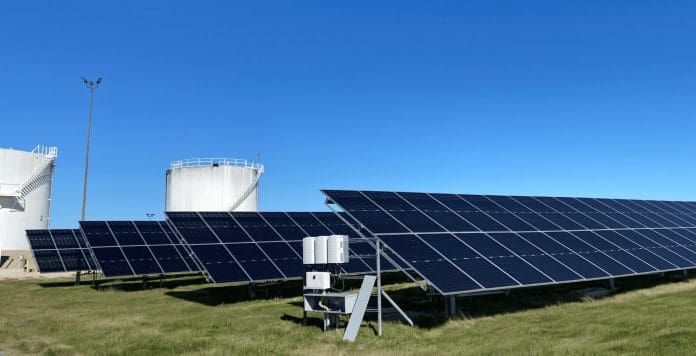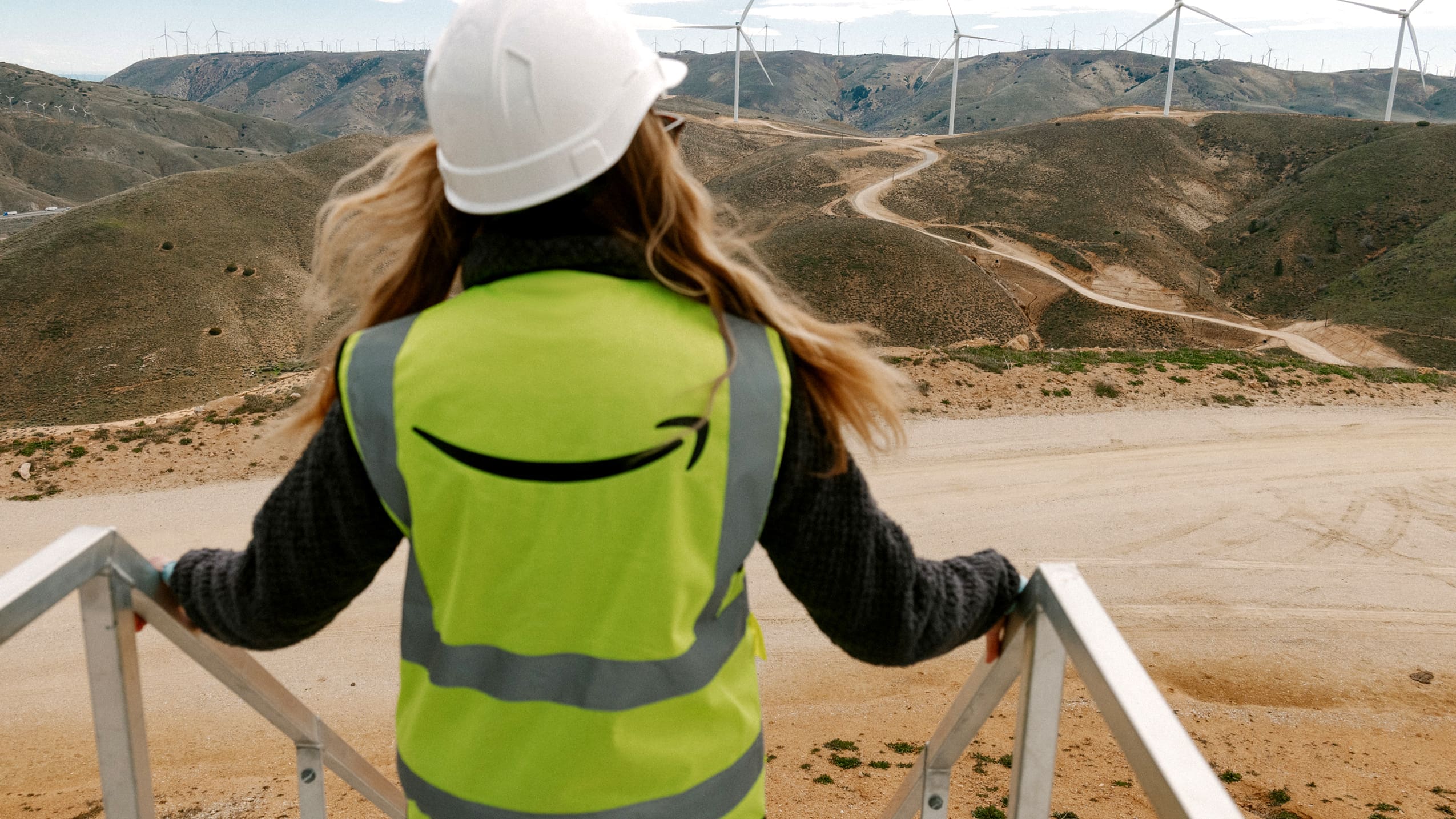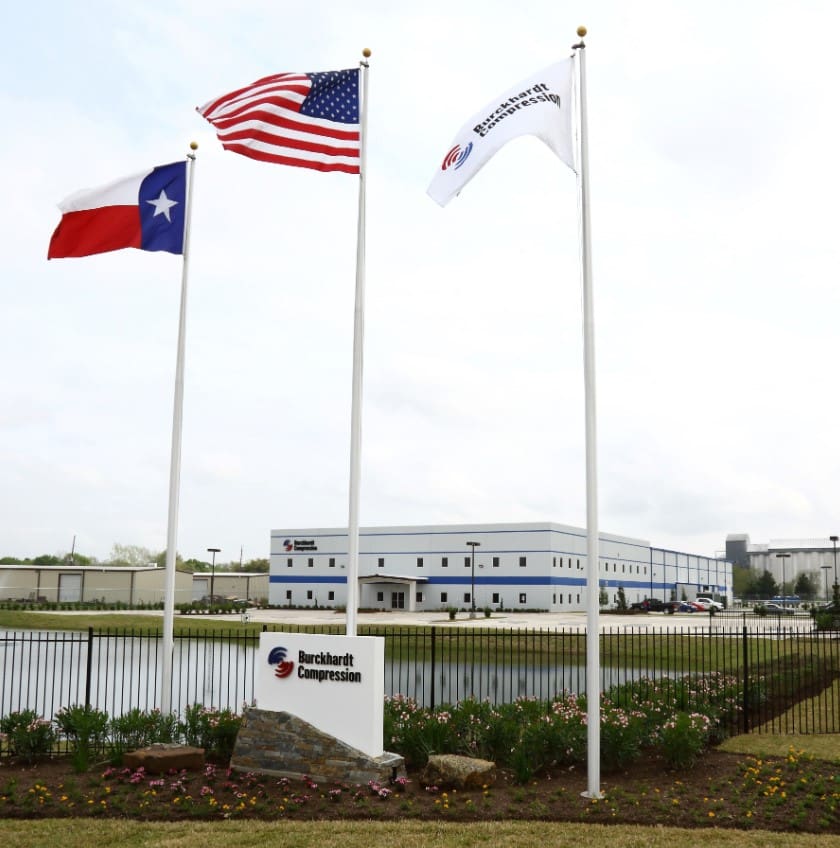US Energy, a provider of refined products, alternative fuels, and environmental credits, completed its first solar project at one of its terminals in Fort Worth, Texas. Located on nearly 13,000 sq.ft. of land between the terminal office and tank farm, the Fort Worth solar field consists of 312 400 W bifacial solar modules that feed into a 124.8-kW DC system. This project will generate 185 to 195 MWh of electricity annually, offsetting nearly 50% of the terminal’s electrical energy load that would otherwise be sourced from grid power.
“We’re excited to see our first terminal solar project operational,” said Dan Morrill, vice president of operations at US Energy. “As we work toward our goal of carbon neutrality, this was an ideal terminal for us to start with due to the available real estate. Having already added solar microgrids at two of our renewable natural gas [RNG] projects, we were able to carry over many of our lessons learned.”
EnTech Solutions provided end-to-end project management through energy modeling, solar engineering and development, installation, and optimization. This is the third solar project that US Energy and EnTech Solutions have partnered on.
“This project allows us to not only reduce our existing carbon footprint by tracking both terminal energy usage and solar energy generation in real-time, but it also provides insights into how we can achieve further reductions going forward,” said Mike Koel, president of US Energy. “As we receive more data on how this project is performing, we will explore building out solar fields at our other owned and operated terminals.”
US Energy has established a network of 35+ owned and operated refined product terminals across the United States — backed by its internal supply and trading teams, multimodal logistic capabilities, and eight-million-barrel storage capacity. Prioritizing sustainability, nearly 80% of its terminals that require vapor control have been updated to include vapor recovery units instead of vapor combustion units, including the company’s Fort Worth North terminal.
















